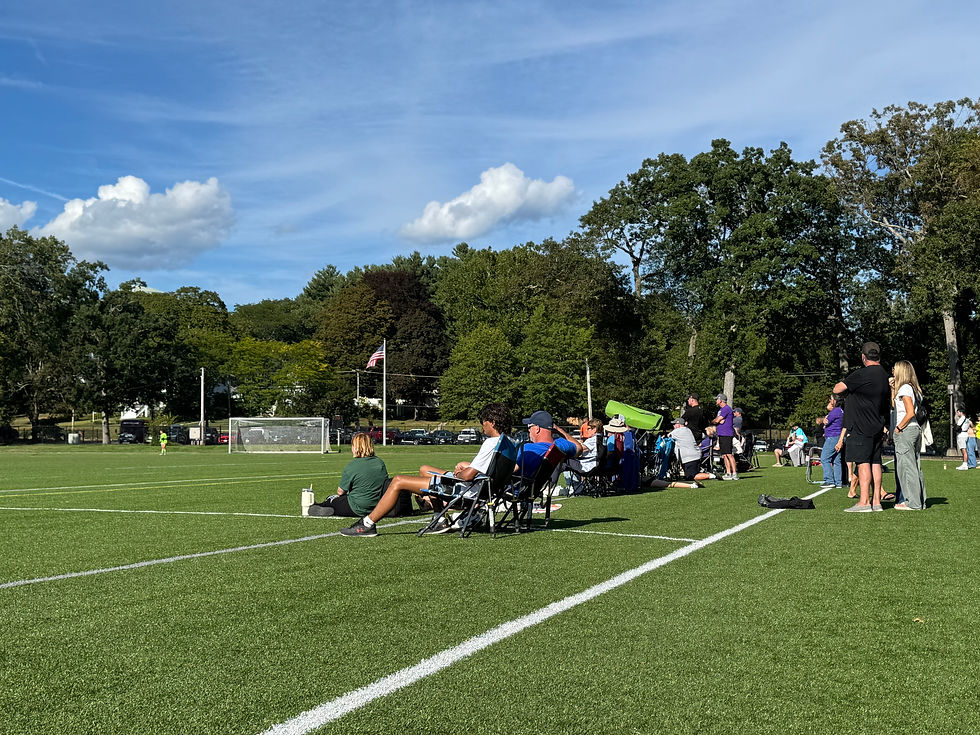Coaching Legend Roy Williams Retires
- Dylan Hicks
- Apr 1, 2021
- 4 min read
(Image courtesy of keepingitheel.com)
When it comes to college basketball coaches, you think of a few names. Bobby Knight, Mike Krzyzewski, Dean Smith, Roy Williams and John Wooden.
All these coaches have won numerous championships, coached the best players, and built elite programs. Of these four great names, only Krzyzewski of Duke remains a head coach, as today it was announced that Hall of Fame, University of North Carolina head coach Roy Williams would retire after thirty-three seasons.
Born August 1st, 1950, Williams has always been a competitor and a winner. Growing up with tough circumstances in a single parent household, Williams would not let this set him back. Growing up in Asheville, North Carolina, Williams worked hard throughout his early life academically and athletically, earning a scholarship to the University of North Carolina turning down an engineering scholarship to the Georgia Institute of Technology.
Being at UNC changed Williams’s life forever; this is where he met legendary Hall-of-Fame coach Dean Smith, becoming fascinated with the basketball program and even playing for the Junior Varsity team under assistant coach Bill Guthridge. Williams would graduate from The University of North Carolina in 1972 before getting his head coaching start at Charles D. Owen High School. After five years of coaching high school Basketball, Williams would get a job at The University of North Carolina as an assistant basketball coach.
For ten years, Williams served under Coach Smith, where he would develop his basketball mind, and watch legends such as Michael Jordan and James Worthy bring the Tar Heels their second National Championship in 1982. After a ten-year assistant tenure, Williams made the move to become head coach of The University of Kansas Jayhawks, where he would be tasked with maintaining and increasing the program’s success after they had just won a national championship the season prior.
From 1988 to 2003, the Kansas Jayhawks were one of the most consistent programs in the nation under Williams where success was achieved early. The Jayhawks reestablished themselves when they defeated North Carolina in Williams’s third season in the national semifinal, reaching the national title game. From then on, the Williams led Jayhawks would win six regular season titles, four tournament titles and would reach another final four in 1993 to close the decade.
Williams would win Associated Press Coach of the Year, Naismith Coach of the Year, Big Eight and Big 12 Coach of the Year awards to close the decade along sending numerous players in the league such as Raef LaFrentz and Paul Pierce.
In 2000, Bill Guthridge retired from the head coaching position at UNC, and Williams was the first name the Tar Heels called. Williams declined, and the Tar Heels would continue their transition phase while Kansas would make two more final fours. Three years later, UNC head coach Matt Doherty would resign from his head coach position and the Tar Heels once again called Williams to take the job, after Williams’s Jayhawks had lost in the 2003 National Title game.
Williams could not turn down the UNC job twice and took over the reins for the 2003-2004 season.
From 2004-2009, the Tar Heels were easily the best program in college basketball. Only three years after going 8-20, UNC would win their fourth National Championship in 2005, returning the program back to its glory days. Four years later, the Tar Heels would win a fifth National Championship in dominating fashion. In this time period, the Williams-led Tar Heels would win six Atlantic Coast Conference titles, reach three final fours and win two NCAA Championships. All of this success in such a short amount of time combined with his time at Kansas earned him a spot in the Basketball Hall of Fame in 2007.
Following a disastrous 2010 season, Williams was able to show off how good his coaching abilities really were. He won ACC Coach of the Year in 2011 after turning an NIT team into a national contender, adjusting his rotations to develop Marcus Paige in 2014 after star guard PJ Hairston was ruled ineligible before the season started. During this time, an academic scandal was hurting his teams recruiting, but Williams persevered and regrouped his team to win a national title in 2017, Carolina’s sixth and Williams’s third, one year after losing to Villanova in the title game on a buzzer beating shot.
No matter what roster adversity or scandal facing his program, Williams would always put it in the time to keep his team alive and in contention for a national championship.
From the highest of highs, to the lowest of lows, postgame celebrations and wearing Jordan’s every game of the season, Williams will always be remembered at UNC. Both the University of Kansas and North Carolina’s basketball programs are where they are at because Williams took the time and would not let a down season keep him down.
Coach Williams is a legend not just because he won three national titles and was the fastest coach to win 900 games, but because of the impact he made on so many of his players lives not only on the court but off the court as well. From developing future NBA stars such as Paul Pierce, to becoming second father figure to players such as Coby White when he lost his. No matter how long his players stayed in school, Coach Williams always put his players first, and taught his players not only how to be better Basketball players, but better people as well.



